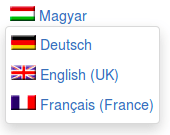Published on March 15, 2025 5:10 PM GMT
One concept from Cal Newport's Deep Work that has stuck with me is that of the any-benefit mindset:
To be clear, I’m not trying to denigrate the benefits [of social media]—there’s nothing illusory or misguided about them. What I’m emphasizing, however, is that these benefits are minor and somewhat random. [...] To this observation, you might reply that value is value: If you can find some extra benefit in using a service like Facebook—even if it’s small—then why not use it? I call this way of thinking the any-benefit mind-set, as it identifies any possible benefit as sufficient justification for using a network tool.
Many people use social platforms like Facebook because it allows them to stay connected to old friends. And for some people this may indeed be a wholly sufficient reason. But it's also likely the case that many people don't reflect a lot, or at all, on the totality of effects tools such as Facebook have on their lives. But being able to point to that one benefit suffices for many to consider it a viable tool anyway.
It's tempting to declare a tool as "useful" whenever you can identify a particular use you have for it. And surely something that's useful is also good, in some sense, and deserves being part of your life. But this is just one half of the story.
What is often neglected in such superficial evaluations is the cost of things - the often indirect and not easy to spot drawbacks. Yes, Facebook can help you stay connected with old friends, but you can find a lot of downsides:
- it takes time out of your dayconstant notifications take a toll on your attentionit may have some undesirable privacy implicationsmaybe it prevents you from deepening connections to your “actual”, current friendsAlso, does it really help you stay connected with old friends? Or is it only a mirage, a superficial shell of a friendship that you uphold mostly out of FOMO? Maybe wanting to stay connected to your "old friends" is just yet another instance of the any-benefit mindset – because who knows when you might need their help, or when you happen to be in the mood to hang out with them in person (which in practice may never happen).
So, focusing only on some particular benefit you happen to find in something is clearly insufficient to make the call of whether that thing deserves a spot in your life.
One reason this concept resonated with me is that, while reading Deep Work, I was just in the process of adopting a more minimalist lifestyle. For much of my life, I had the ultimate any-benefit mindset towards things: I could see a potential use "in the future" in almost anything, so owning things felt good. It felt like I was making progress in building a better future. The more potentially useful things I owned, the better! One day, I would just own so many useful things that whatever problem came up, I would have just the thing for it. Or at least that was the subconscious belief I happened to follow.
For instance, there was a subscription to a monthly magazine that I upheld for several years, receiving over 50 physical printouts until I finally cancelled it. This magazine was relevant to one of my hobbies and I had the impression that it would be valuable to read them. I probably skimmed a few of them, but it was, had I been honest with myself, pretty clear for most of that time period that this subscription was just a waste of money and shelf space. I just irrationally clung to the idea of eventually getting to read all these magazines in the future, and then it would have been worth it! Future-me might get some real use out of all of them, so I kept accumulating them in a pile of shame.
Other examples involved a pineapple-cutting device (that I probably used a whopping 1 times), an ice cream machine (that I used a whopping 0 times) and a piano (that for a long time I was excited about learning to play in the future). But there were countless more. It happened more often than I'd like to admit that my girlfriend investigated some random thing she found somewhere in my flat, and asked me "How often do you use that?" and my answer was essentially "no".
Maybe these cases are even worse than what Cal Newport had in mind: The benefit I saw was often not even an actual benefit! Instead it was purely hypothetical, just some option value for the future, because you never know, right? But the fact remains: I was blindsided by some minor benefit while ignoring the drawbacks – in my case, the drawback that owning many (physical) things is low-key stressful. It takes space, the physical presence of things around me comes with its own affordances, it makes it harder to find things I actually need when I need them, it complicates moving to new places, it gathers dust. But these issues were somewhat subtle and indirect. So, for a long time, I didn't connect the dots and kept accumulating things I never ended up using, until I one day was blessed with the mind-blowing epiphany that owning fewer things is actually nice, and that if I'm not willing to set up or use or read some "potentially valuable" thing today, chances are I also won't be willing to do so in the future.
Any-Reason Reasoning
I also occasionally encounter a variation of the any-benefit mindset that one might want to call “any-reason reasoning”. The principle is simply: you make a decision in a certain way because you can think of a single convincing-sounding reason for that particular option, while not bothering to look for any further arguments in either direction.
Some years ago, while working as a software developer, I encountered this interesting question: should language pickers show country flags next to the languages?

If you google this question, you will find many cases of people with quite strong opinions on this, usually pointing in the same direction: you should not! The main reason being that countries and languages are not the same and there's no perfect 1:1 mapping between them. There are many languages like English, Spanish and French that are spoken in a multitude of countries all over the world. Why would you choose just one flag to represent them? It wouldn't be fair to choose one over the other! And similarly, some countries, like Belgium, Singapore and India, have more than one official language. So, case closed, right? Wrong! All we know at this point is that there's one argument – albeit a fairly good one – in favor of not using flags for language selections. But if we've learned anything from this post so far, then it is that premature conclusions based on one-sided considerations can lead to suboptimal decisions. So, are there some arguments in the opposite direction? I think there are:
- The primary reason for even considering adding flags to a language selector is not to make any 100% accurate statement about the world; one motivation might be to make it easier and faster for users to find the language they’re looking for, in a potentially long list. And that's an empirical question that could be tested (and I think there are strong reasons to assume this would turn out to be true).Another benefit is that users who are exposed to an app or website in a language they don't speak have a very quick and easy way to change the language. Flags solve this basically perfectly. If I see a website in Russian but then there's a small Russian flag visible somewhere, I immediately know where to look for the English setting. And I can find the language even if the written-out languages aren’t legible to me. But if the developers decided that, no, flags don't have a perfect 1:1 mapping to languages, so we don't use them, then I'm just lost.I sometimes wonder whether people insisting on the "it would be unfair to choose one flag over another" argument realize that most languages have a 1:1 relation to a country in their very name! Why is it fair that English is called English, but it's not fair to use the English flag? Why can we call Spanish Spanish and nobody complains, yet using the Spanish flag is, somehow, morally repugnant?
One colleague of mine, when debating this question, went with a slightly different instantiation of any-reason reasoning: he mentioned that he had experience with this from the past, and when flags were used for language selection, users complained. This, too, is a valid point. You generally don't want your users to complain. But I would not at all be surprised if the generating evidence behind his "users complained" remark were, say, three emails from outraged users from the "countries and languages are not the same" camp. If a handful of users are annoyed, but the other 98% of your users get their job done slightly more quickly without giving a second thought to the change, maybe that's a good trade-off to make.
If you compare two variations of something, and one leads to more complaints than the other, chances are that variation is indeed worse. But it may also be that it's actually better and just happens to have a quicker way to the conscious attention of the type of person who likes to complain, while the people who benefit don't bother contacting you about it (if they even notice). So relying solely on "users complain" is necessarily insufficient to get to any well-informed assessment.
All of this is not to say that one should use country flags in language selections. I'm still torn on this, and my generic answer is probably just it depends. But claiming that this is a stupid consideration based on a single argument, without acknowledging that there are quite strong and valid arguments pointing in the other direction, is just sloppy reasoning.
A decision should not be set in stone as soon as you know a single reason for or against one of the options – even if that reason is compelling. Sometimes there's equally enticing reasons on the other side (such as flags helping users who don't speak the current interface language), sometimes your reason is not all that informative for what you actually care about (such as the productivity of your average user who gets their job done more quickly if they can find the right option from a long list more quickly), and sometimes the reason you're looking at appears way more convincing than it actually is. Did someone once complain about the thing you're considering? Maybe this is just, you know, fine. Sometimes people complain, and it's not necessarily your duty to prevent every last complaint. The optimal number of complaints you cause is probably not 0.
So, don't treat "a reason" as a stop sign. Unless the decision is a trivial one, it may well be worth diving behind that first reason and exploring the real complexity of things, the actual trade-offs, and only then you'll be able to make a wise, well-informed decision.
Discuss


